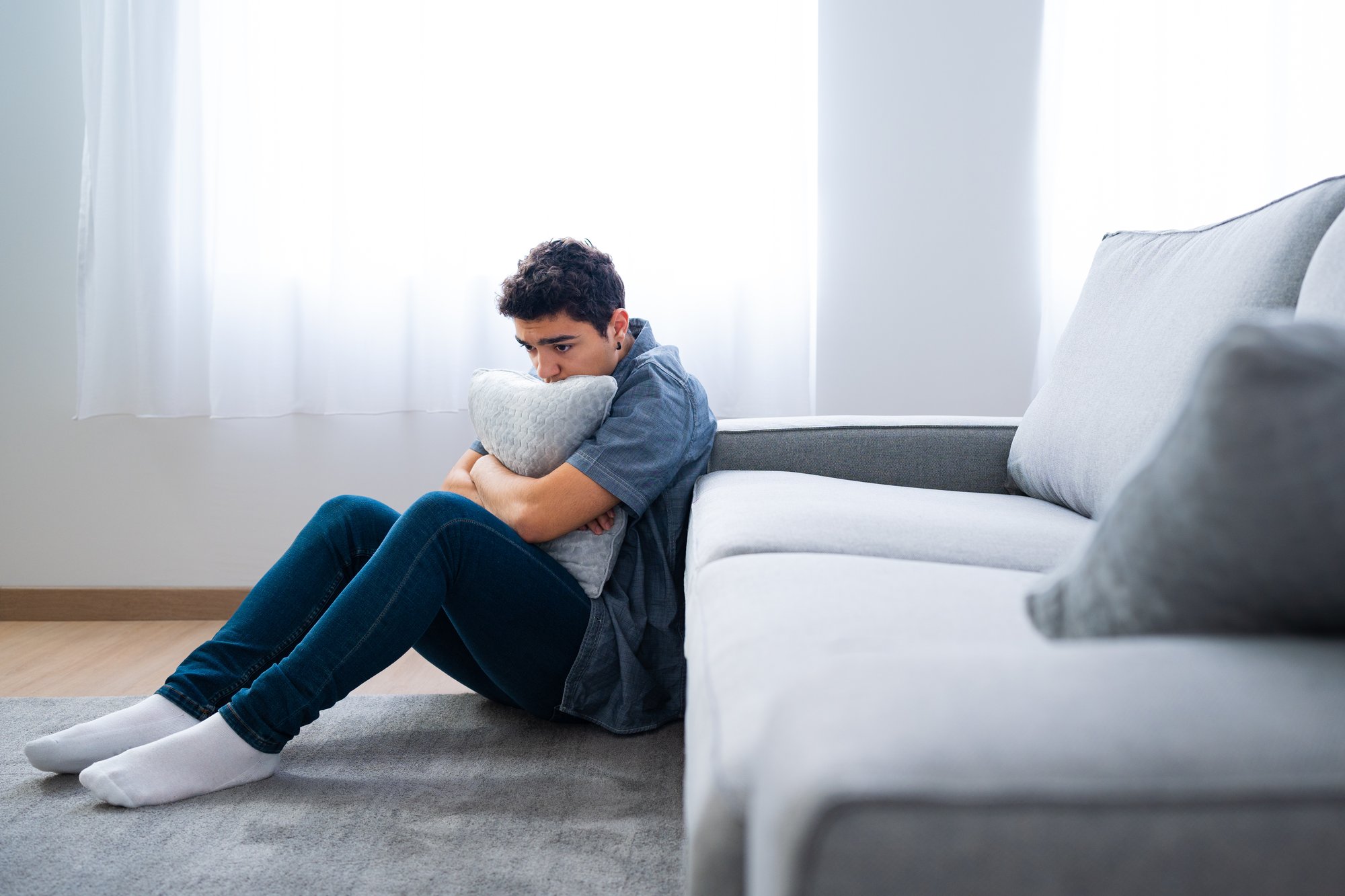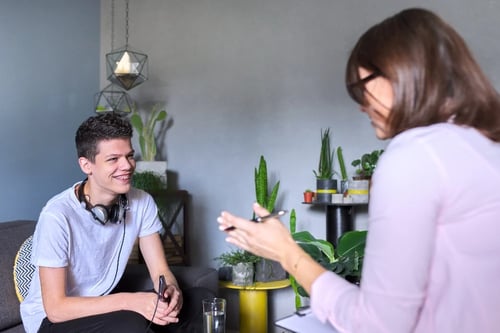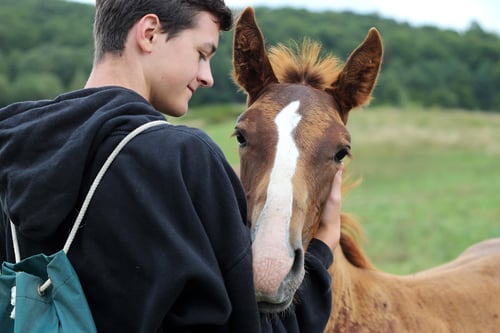Teen Anxiety? Here Are 5 Ways to Help
Anxiety is a relatively common concern for children and teens. Reports show that up to around 9% of children aged 3 to 17, and over a third of teens aged 13 to 18, live with an anxiety disorder. The numbers may be even higher post-pandemic.

Table Of Content
- How You Can Support a Child with Anxiety in the Moment
- How to Support a Child with Anxiety Disorder
Anxiety is a common emotional experience that can sometimes turn into a mental health condition (anxiety disorder). On top of the young people who experience anxiety disorder, there are many more who will experience the emotion of anxiety at some point in their lives. We might even say that most children will feel anxious at least once.
Parents play an important role in supporting their children through anxiety. There are many things that you can do as a parent that can help your child during this difficult time.
Today, we’ll give you tips on both how to manage your child’s anxiety in the moment as well as how to help your child cope with a more long-term challenge with anxiety.
How You Can Support a Child with Anxiety in the Moment
It can be scary to see your child face anxiety, whether or not they have a diagnosable anxiety disorder. You may feel helpless when you observe signs of anxiety in your child. You want to comfort them, but you feel uncertain about what exactly to do.
Here are some practical ways you can help a child cope with anxiety in the moment they are experiencing it.
Validate their feelings
As a parent, giving your child platitudes is tempting when they’re feeling upset. For example, you might see that your child is anxious about their first day of school and want to tell them, “It’s okay; there’s nothing to worry about. Everything is going to be great.”
While this can be comforting for some children, validating their feelings is also important. While specific worries from your child may not be a big deal for you, remember that it’s a big deal for them—which is why they’re anxious about it.
Instead of placating them, try saying something like this: “I know this is a big feeling. You’re scared, and that’s uncomfortable.” You can validate their feelings without validating the fear. There’s a difference between saying, “It’s okay to be scared,” and saying, “The first day of school is a scary, bad day.”
Help them feel safe
As important as it is to validate feelings, it’s also helpful for parents to let children know that they are safe—in a way that doesn’t minimize their fears. Children look to their parents for guidance. If you start feeling anxious when your child is telling you about their worry, that may make them feel even more anxious.
For example, they’re worried about the first day of school. Responding in a way guided by your own anxiety—“What are you worried about? Is someone bothering you there? Are you going to be okay? You can stay home if you like.”—this could make your child even more fearful.
Let your child know they are safe and will be okay. Instead of saying, “You’re fine, there’s nothing to worry about!”—which can be invalidating—say something like, “I know this is scary, but I have great confidence in you because I know you’re brave and strong. You will get through this, and I’ll always be here to keep you safe.”
Help them face their fears
You might want to help your child to avoid whatever they feel anxious about. For example, you might let them skip a piano recital if they’re nervous about it or steer clear of the shark tank at the aquarium to avoid triggering their fears.
The problem with this is that your child won’t walk away with the critical and necessary life lessons on how to conquer their fears.
Anxiety is a part of life. None of us get through life without feeling anxious or worried about anything. The goal isn’t to eliminate anxiety from your child’s life—that’s a futile endeavor. It’s to teach them that they can overcome anxiety and face challenges despite their fears.
Take baby steps. For example, if your child is scared of performing at a recital, have them do several rehearsals before the real thing. You don’t want to push them too far because this will induce such a heightened stress level that they may shut down completely, but taking baby steps toward their fears is important.
How to Support a Child with Anxiety Disorder
How to Support a Child with Anxiety Disorder
If your child has a long-term anxiety disorder, then it may not be something that you can solve on your own. Child anxiety is highly treatable, but your child may need to work with a mental health professional to learn how to cope with their anxiety.
The two most important ways you can support a child with anxiety disorder is to:
1. Recognize they have an anxiety disorder, and
2. Connect them with professional support.
Understand the signs
If you don’t know how to read the signs of anxiety, you might misinterpret your child’s behavior. For example, many children who feel anxious act out in anger or have emotional outbursts. Without understanding this behavior within the context of anxiety, it might get misunderstood as a misbehavior.
Some other common signs that your child is feeling anxious include:
-
Having bad dreams or trouble sleeping
-
Crying a lot
-
Not wanting to leave your side (separation anxiety)
-
Being more fidgety than usual
-
Having to use the bathroom more often
-
Expressing worries about many things that are out of their control
-
Not eating properly
-
Complaining of unexplained physical symptoms, like stomachaches
It’s important to notice these signs so that you can get help for your child right away if you think they’re facing an anxiety disorder.
Get mental health support
Once you notice that your child is displaying signs of anxiety, find and connect them with qualified mental health support as soon as possible. Licensed child therapists have the experience to connect with young people and help them learn how to manage their anxiety.
Idaho Youth Ranch provides counseling for kids and teens using an evidence-based, trauma-informed approach. To learn about how Youth Ranch can support your family, get in touch with us.
Let Idaho Youth Ranch help your teen
Teen Counseling
Our masters-educated and trained therapists and counselors have the experience your young person needs to find healing.
Family Counseling
Idaho Youth Ranch can help your family reconnect, open up lines of communication, and build more positive relationships.
Group Counseling
Group therapy helps young people, ages 9 to 24, to address trauma, dangerous behaviors, troubling feelings or experiences.
Equine Therapy
Working with horses has been a proven method of emotional recovery and one of the unique services offered by Idaho Youth Ranch.


.webp?width=500&height=334&name=Idaho%20Youth%20Ranch%20Family%20Counseling%20(1).webp)

